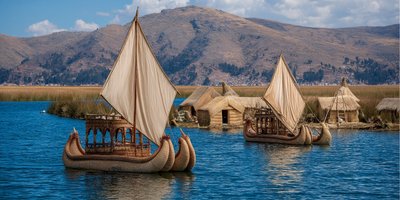When visiting Lake Titicaca, understanding the weather is crucial for a comfortable experience. This high-altitude lake, situated at over 12,500 feet, experiences a unique microclimate. The weather can be unpredictable, with sunny days turning to rain in a matter of minutes. Typically, the best time to visit is between May and September, during the dry season, when the skies are clearer and rainfall is minimal.
Daytime temperatures can be pleasant, averaging around 60°F (15°C), but evenings can get quite chilly, dropping to around 30°F (-1°C). Be prepared for temperature fluctuations by layering your clothing.
The sun is intense at this altitude, so wearing sunscreen and hats is essential to protect your skin. Also, due to the altitude, visitors may experience altitude sickness; ensure you stay hydrated and take it easy on your first day.
Rain is more common in the wet season, which runs from November to March. During this time, you might encounter heavy showers, especially in the afternoons. If you plan to visit during these months, pack waterproof clothing and sturdy footwear for hiking.
Lake Titicaca is home to several indigenous communities, and cultural events often take place throughout the year. Understanding the weather can enhance your experience, as many festivals are celebrated outdoors. Additionally, the vibrant local markets are best enjoyed on dry days.
Combining your visit to Lake Titicaca with a trip to Machu Picchu offers a rich tapestry of experiences. The weather at Machu Picchu mirrors that of Lake Titicaca, with similar dry and wet seasons. Consider timing your visit so that both locations can be enjoyed without the hindrance of rain.
In summary, check weather forecasts ahead of your trip, pack accordingly, and plan your activities around the climate. Whether you are exploring the floating islands of Uros or hiking on the shores of the lake, awareness of the weather will significantly enhance your adventure.






